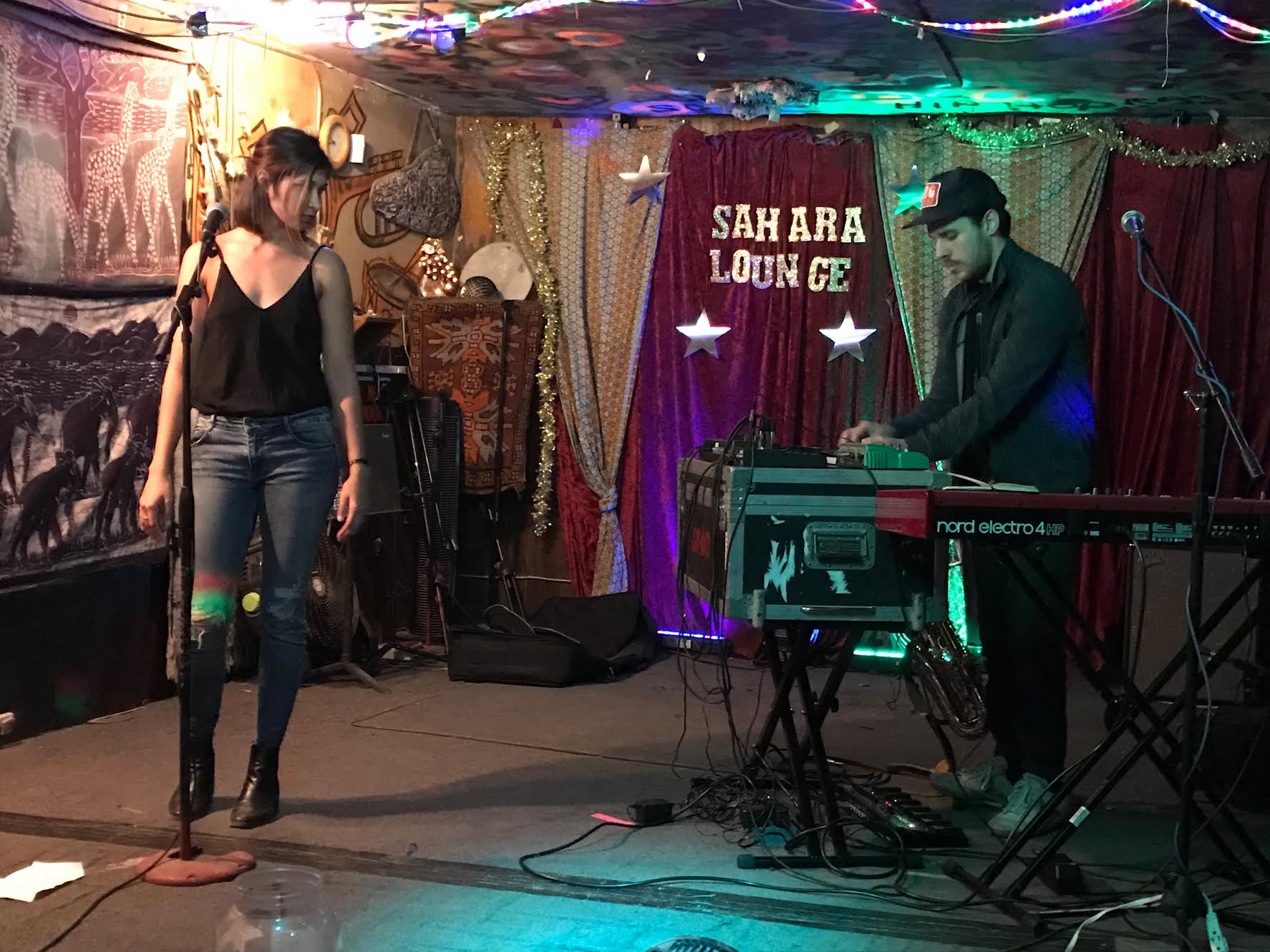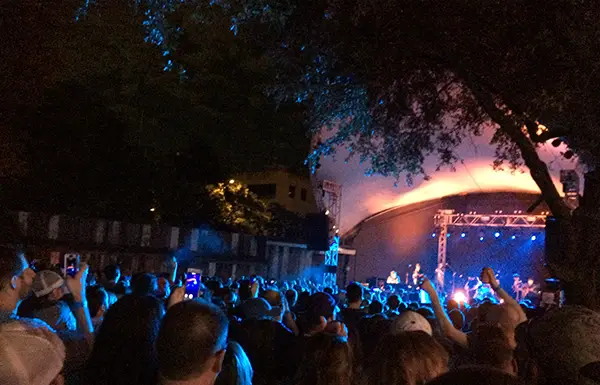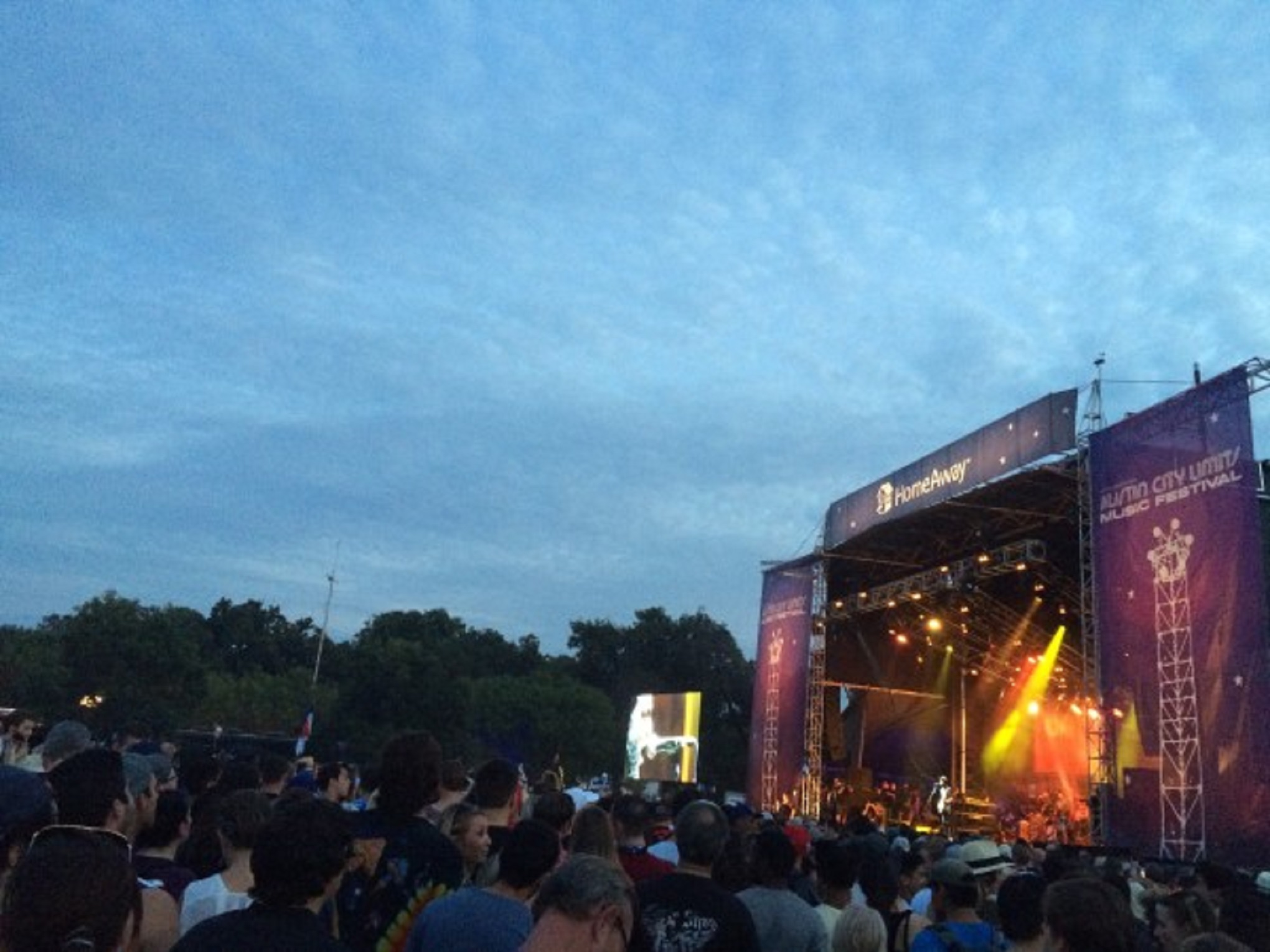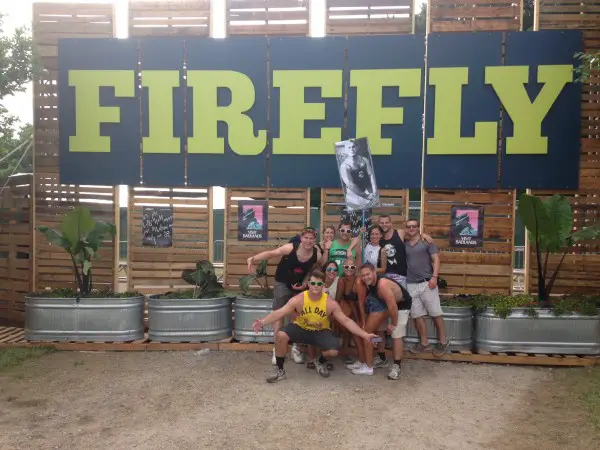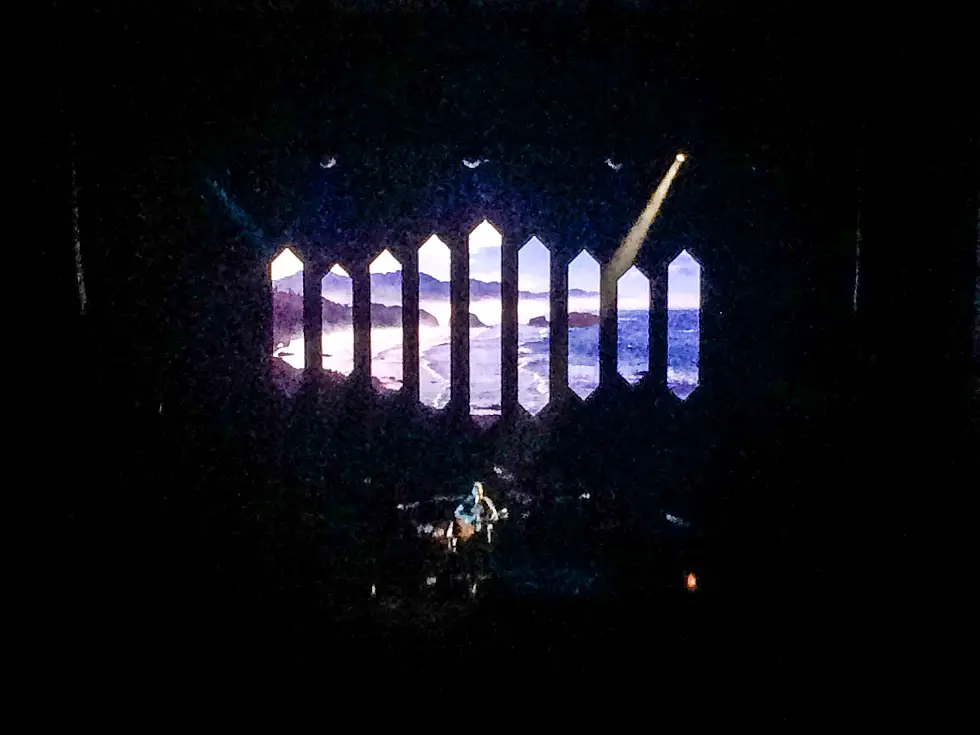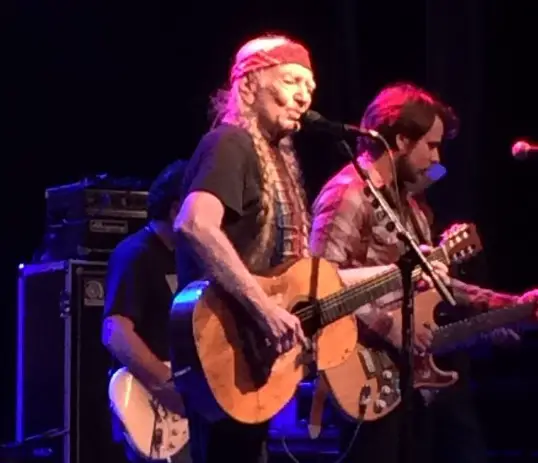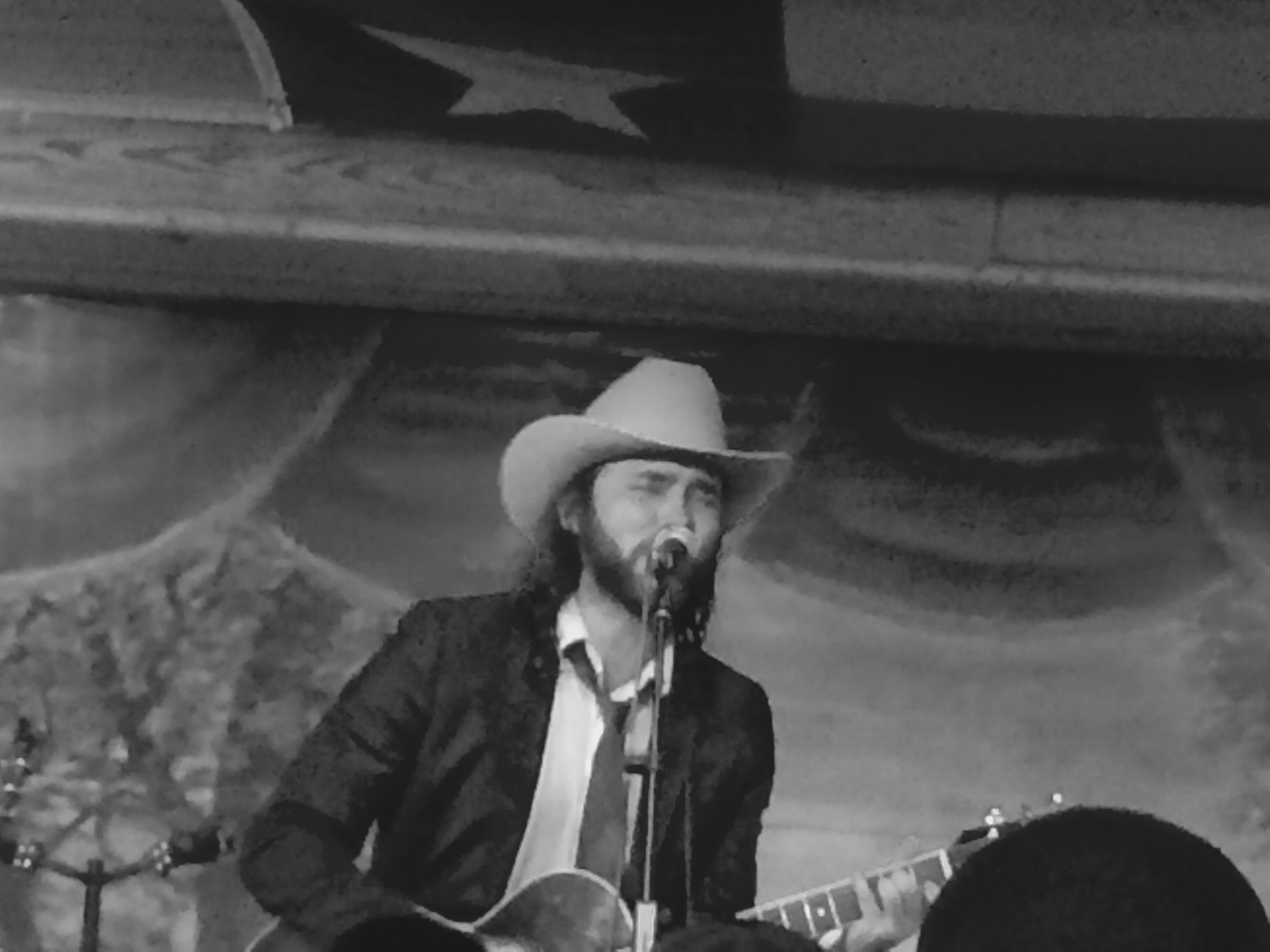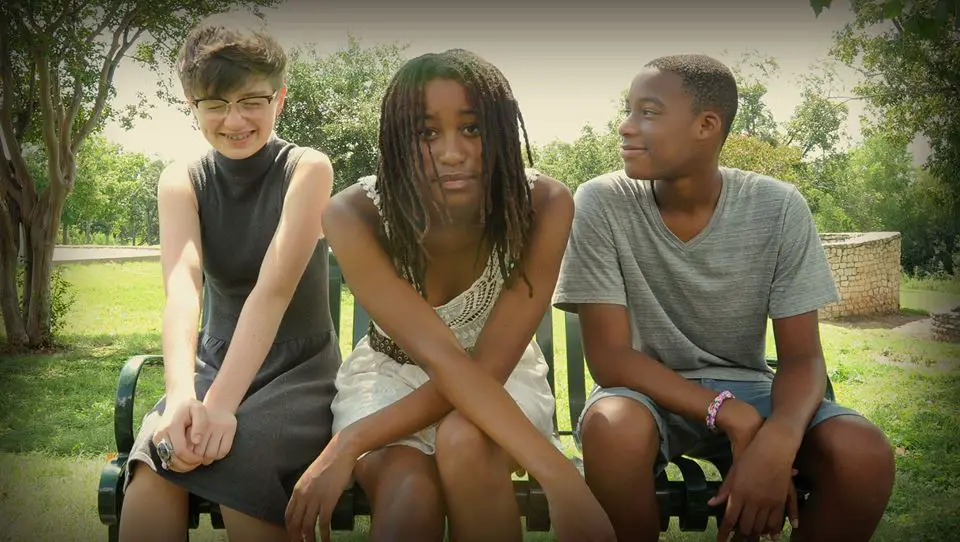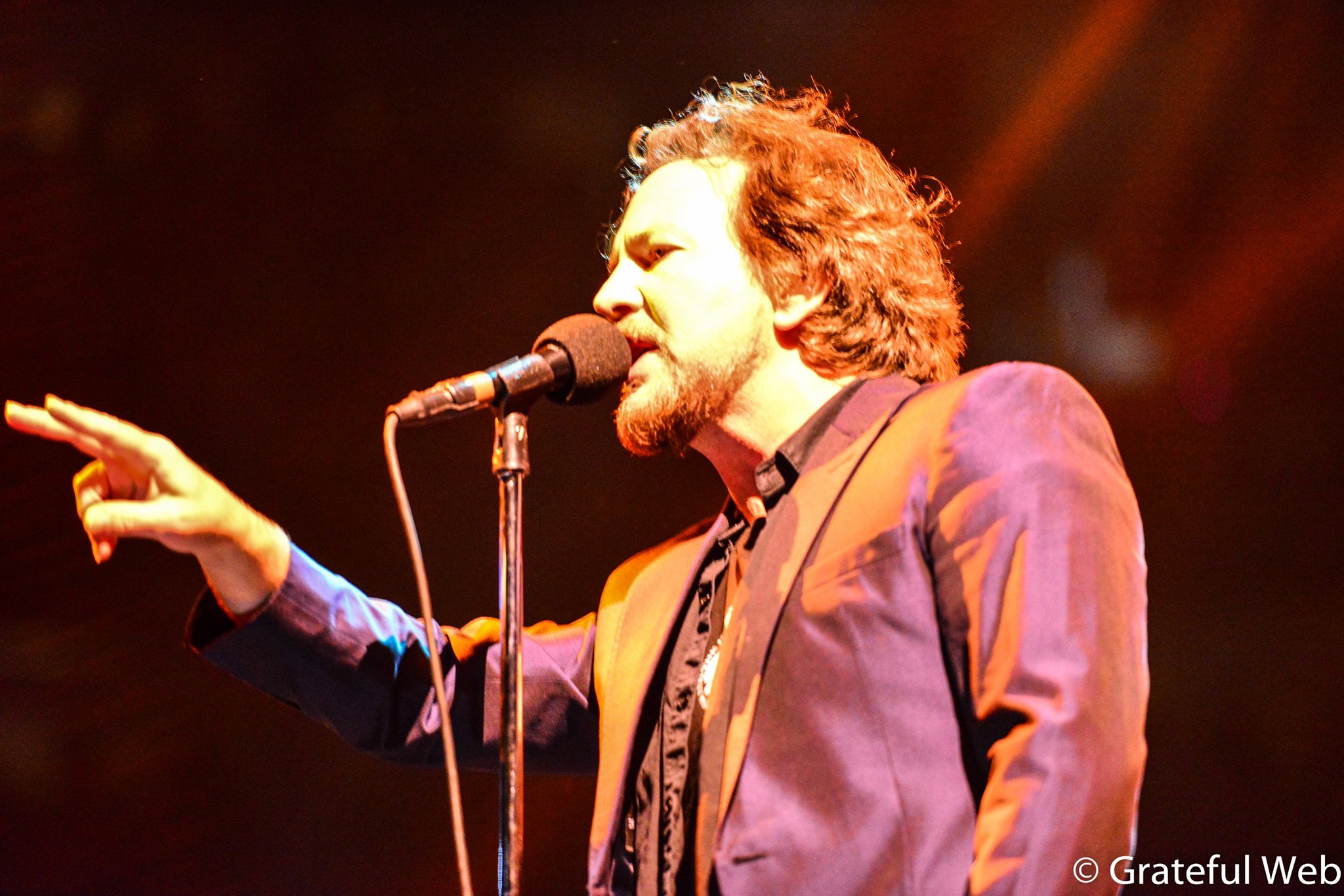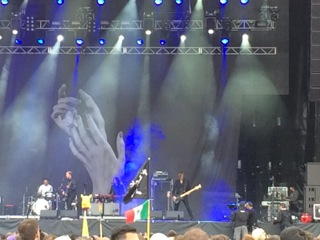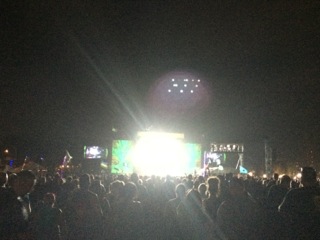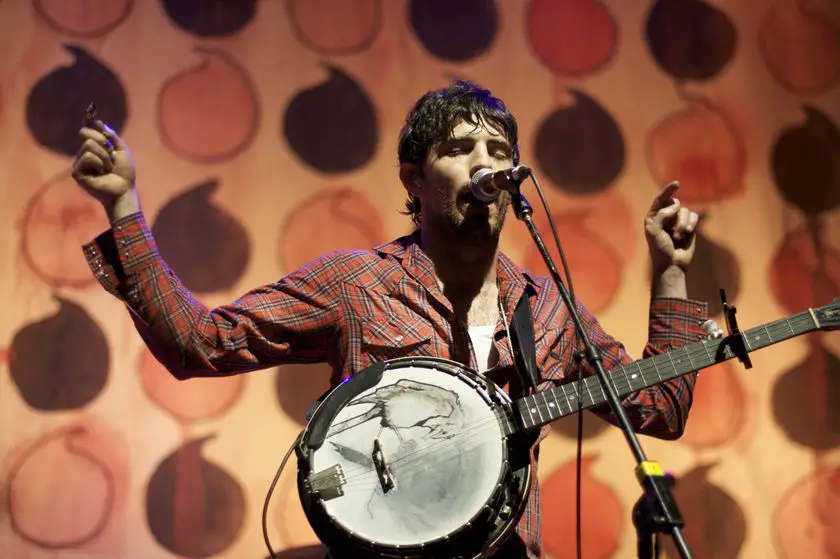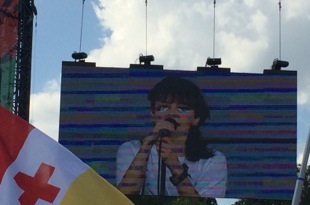Real musicians make their home anywhere, including the cramped backstage area at one of Austin’s best music venues, The Parish. Over cups of instant coffee, Grateful Web’s Caitlin St. Pierre sat down with The Revivalists, who are not strangers to life on the road. The band, due to re-release their album City of Sound with an additional hour of live tracks, is excited to be kicking off their tour in the ‘Live Music Capital of the World.’ Their fresh energy, hysterical banter, and undeniable talent makes for an easy interview, and one hell of a show.
Grateful Web: You are re-releasing City of Sound on Mardi Gras, which is appropriate since you guys originated in New Orleans. How much of your sound was influenced by local music like Dixieland or Blues?
Zack: I don’t think you really have a choice of how much it’s going to influence you or not, it’s like whether or not you want it to it just does. Just from being there, and listening to all the New Orleans music, there’s constantly good music around. So, I would say a good amount, maybe more than we think, just because it just gets into the way you play.
GW: It gets in your blood.
Zack: Yeah.
Rob: It’s not something that you necessarily… you could almost listen to us and not be able, on the surface, really be able to tell that we’re from New Orleans, because we don’t necessarily play the styles that are really prevalent in the area. It’s kind of an undercurrent, there’s something in it that you can’t quite put your finger on.
Andrew: The sound, in New Orleans, it gets into your playing because there is so much going on, you go out to the clubs, you can be with people that do it better… some of the best musicians play there throughout the year, and they’re all willing to hang out and play, it’s a very uplifting community. It’s easy to learn, everyone’s accessible. It gets into your playing just from being around other people who inspire you.
GW: How many of you were born and bred?
All: Zero.
GW: Really? None of you are from Louisianna?
Zack: Yeah, we’re all transplants.

George: Curveball!
Zack: Many of us went to college in New Orleans, at Tulane and Loyola, but our lead singer {Dave} moved down right after he graduated Ohio State.
GW: So Dave, how did you come into the picture?
Andrew: Ooh, tell the story.
Dave: I was sitting on my front porch playing guitar, just playing a song, and Zack just rode by on his bike, and heard me.
GW: That’s too good! So he just stopped, dead in his tracks, and said: YOU.
Zack: So I stopped, and he was just playing some songs, and I pointed at him and said, “You wanna make a million dollars?”
{Everyone laughs.}
Andrew: Zack and I met, a few months before that, at Tipitina’s, at this workshop, and we had played together a little bit, but we hadn’t really started, we just kind of played at my house, and then we found Dave.
GW: Since your formation in 2007, how have you watched the Indie Rock scene change around you?
Zack: I think in 2007 it was much more of a “thing” to be Indie, it was almost like a stylistic choice.
Ed: Indie used to mean “Independent”, now it’s a style of music. It was a hot thing to be “Indie”, like a trend.
Andrew: But the Indie music scene has changed a lot, the stuff that was Independent in terms of not necessarily just its genre, it’s gotten bigger with people like Lumineers, Mumford & Sons, and Gary Clark Jr. winning Grammys, and that has changed since 2007, partially because Indie artists have gotten big. A lot of that is done through touring. There seems to be a renewed interest in playing, and musicians, as opposed just types of music being popular now. There’s just such a wide audience, it was in 2007, too, but people are really using the tools at their disposal.
Dave: Yeah, musicians are able to be Independent while still reaching the masses.
Rob: The things that can count as huge.. multi-platinum—I don’t even want to say that because I don’t know if there really are multi-platinum albums anymore, but the things that can be huge that everyone’s into, I think there’s a lot more range of that nowadays than there has been in the past decade or so.
GW: So it sounds like it’s changed in a positive way. This next question is more of a two-part question, so here’s the first—Was music always a part of your life?
All: Yes, absolutely.
GW: Across the board?
Dave: My mom sang in church.
Ed: My Dad played guitar.
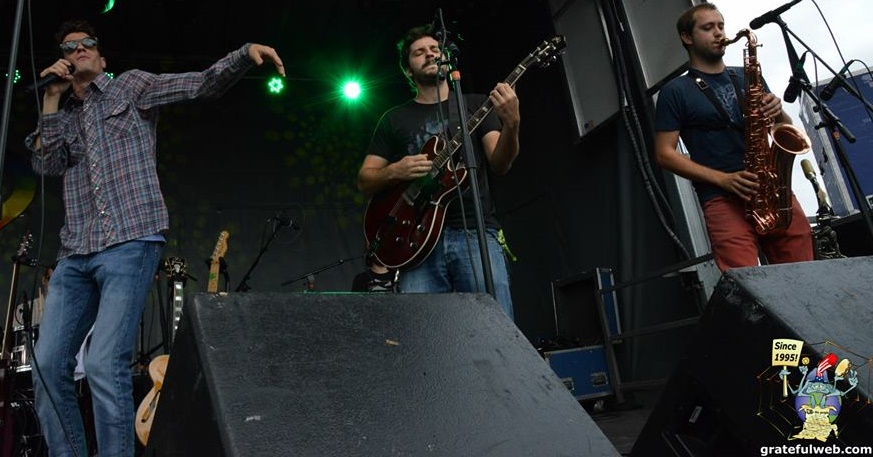
Zack: Yeah, my Dad taught me how to play guitar. Mike {Girardot, Keys/Trumpet} who’s from Austin, he’s as musical as they get.
Rob: His family cooks breakfast in four-part harmonies.
Ed: I think we all played instruments since we were really young, so it’s been with us for a long time.
GW: What bands inspired you to become musicians? And, what bands still inspire you today?
Ed: Guns N’ Roses.
Andrew: I grew up, well, learning how to play, it was the Chili Peppers. But in terms of being inspired to do music, it was just the stuff my Dad was playing which was like Motown stuff, 1950’s doo-op, and then also The Beatles, Allman Brothers.
Zack: This is not corny but I remember being on a field trip, sitting on the bus, I’m in like 4th grade, and thinking “I think I want to be President when I grow up,” and I was listening to the Best of Sting, and The Police, and the songs were so good, and I was just like “Yeah, I think I wanna do music, this stuff is too awesome.”
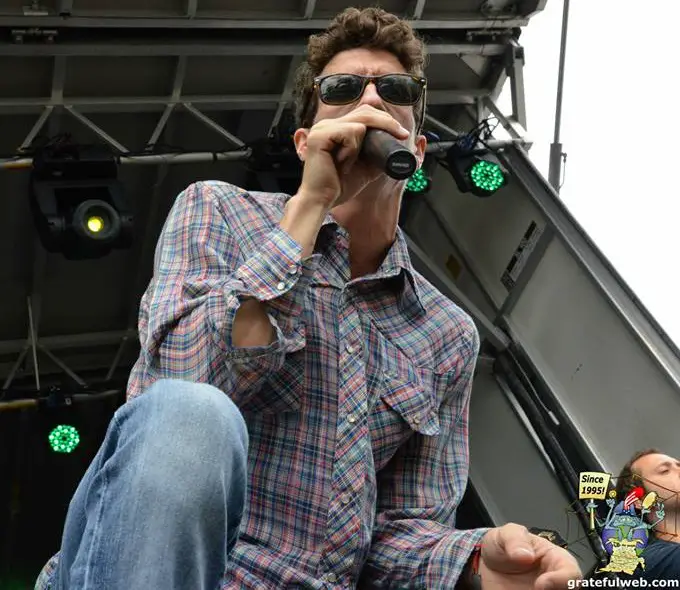
George: Kind of like Andrew I grew up listening to a lot of Motown, my Mom was really into the Beatles, Rolling Stones, a big James Taylor fan, and I started playing, formally, saxophone in the 4th grade, did it all the way through highschool. Led Zeppelin was the first band that I heard and thought “Holy shit I wanna do that.”
GW: So there’s a definite note of rock n’ roll pulse at the core of this band.
Dave: Yeah, a rock, soul, pulse.
George: Well we’re into all different styles of music, which I definitely think helps cater to our sound, cause if we were all into the same exact thing, we’d probably end up sounding exactly like those people, unintentionally.
Zack: The Jam Band community, and the Grateful Dead community sort of like… the way that the Grateful Dead played all kinds of American music, from their time period: rock, folk, blues, stuff that was cutting edge at the time like psychadelic experimentation kind of shit, I think we kind of embrace music the same way, we appreciate a wide variety, as well as experimenting with music the same way. So we have an appreciation of history as well as an appreciation for the craft of songwriting, which is really important to what we do.
GW: Excellent segway, Zack. How does a group of six go about songwriting? Is it an individualistic endeavor or more of a brainstorming as a whole?
Ed: Every way that you could possibly think of is a way that a song has been produced. It could be one person coming in with it, it could be written in a jam or even in a soundcheck, somebody just doing something, someone else adding on, and then Dave just writing some lyrics over it. I really think a song has come in every possible form that it could, in this band, because we all have our hands in it in different ways—composing or writing, or things we’re creating.
Andrew: People bring in songs that are incomplete or ideas… but it’s the same thing as what we were talking about before. Everybody listens to different kinds of music, everybody’s writing different music, if the band just embraces different styles, it’s what we do. We like a lot of things, we write a lot of different stuff.
Ed: A good song is a good song no matter what form it is in.
GW: I love your sound, it’s really unique. I love that you marry different ieas from different genres and refuse to fit into one specific category. When you guys take the stage, what is the message you’re trying to convey to the audience?
David: I think it’s a positive one. You know, we’re trying to convey the emotion of the song, first off, maybe what the emotion was at the time that it was written. There could be some darker songs that we play, but that doesn’t mean the theme of the night is dark, you know, it’s more just creating a mood and creating an experience. And it’s about keeping it fresh, for us, too, because we do it 200 nights a year.

Zack: It’s not just going to be like “oh this is a good dancing concert” we try to be able, as musicians and artists, to play on a bunch of different moods and emotions, and it’s all just fun.
Andrew: Exactly, it’s all about just having a good time, at the end of the day. I mean, the songs are serious and are about things we’ve gone through, and the songs individually have messages, but in terms of when we take the stage, live, more than anything else I want people to just leave and be like “That was a good time.”
GW: You guys tour a ton. How do you balance life on the road with—to steal Rob’s term—Girlfriend Reconciliation Interval?
George: What was that term Rob?
Zack: Dinner! Buying them dinner.
Ed: Gifts from along the road! Scarves from India!
Zack: Emojis. Lots of winky faces, you gotta give them lots of good emojis.
GW: So emojis are key. Take notes, guys. What about just in general? How do you guys do it? How do you tour two-thirds of the year?
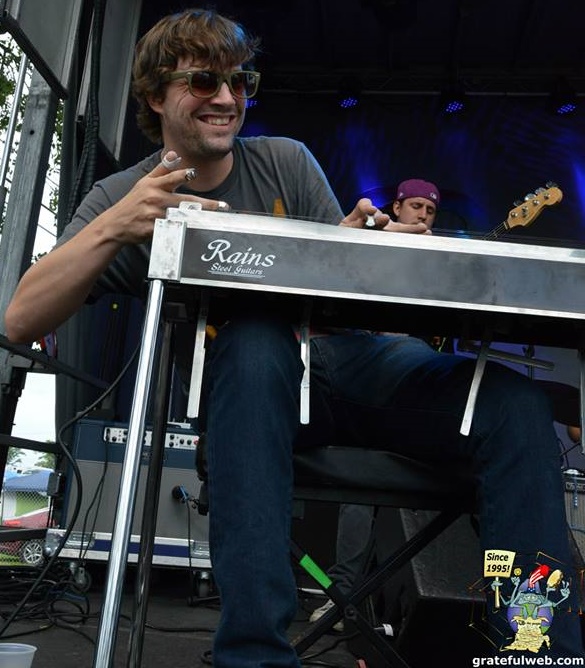
George: You kinda get… if I’m home for more than a week or so I get cabin fever I wanna go back on the road. If I’m stationary for more than a week or so I wanna get back out there.
Rob: For me, it’s a modes thing. If we’re at home for a while, then I’ll get on ‘home mode’, and be like “Ahh, I don’t want to go on tour,” for instance this is the first show of the tour, but within a couple days or so I’ll get into tour mode like “yeah let’s fuckin do this.”
Andrew: Now we’re two weeks on two weeks off which is pretty solid.
Rob: Yeah, we’re getting a lot more GRI {Girlfriend Reconciliation Interval} these days, we were getting to a point there where we are touring a little bit smarter rather than harder these days.
Ed: It’s tough being in a relationship and being away so much, but ultimately though, it’s part of who we are and they love us for that. They would rather us be interesting, and having these cool experiences, and participating in a lot of them, than just get crammed in.
Rob: They might get sick of us if we were around the whole year!
Ed: Touring, being musicians, makes us who we are.
GW: What does 2014 look like for you?
All: Busy. Fun. Wild.
David: We’re gonna get to do a lot of festivals that we didn’t do last year—
Andrew: But we can’t talk about lots of them. I don’t know what we can and can’t talk about!
David: Yeah some of them haven’t been announced yet. We’re doing Jazzfest, which we did last year, Counterpoint, in Atlanta, Ora, Tortuga.
Andrew: Lots of festivals. We just got out of the studio two days ago, we spent eight days in the studio recording our next album. So we have the re-release coming out in March with some live stuff, and we hope that before the end of the year we’ll see the next disc too.
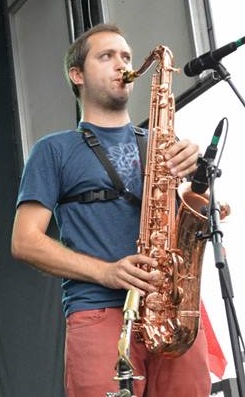
GW: Wow! Really busy!
Andrew: Exactly. That’s why it was the first word you said when you asked us.
Zack: I just want to add also about the re-release that’s coming out. We’re excited because it’s pretty much a live album, and people have been asking us about it for years, and this was the way for us to do a live album. We didn’t want to just re-release the disc as it was. We’re also releasing it on vinyl.
GW: Exciting! What can you convey with a live album you can’t with a studio recording? Is it grittier? More raw?
David: We fuck up a lot more!
Ed: It’s a different project, that’s the thing. One is about the energy of the room, the other one is more about moving you as you’re listening to it.
George: When we’re live, you have to fill a space, whereas in the studio it’s totally okay for there to be no space. It’s different, it’s very different.
Andrew: They’re just different goals.
Rob: Our live recording has more of an appeal to the festival scene, we get a little bit more explorational during live shows.
GW: Well, it was so nice to meet you, thank you guys so much for sitting down with me. Can’t wait to see you guys tonight!
All: Thanks! You too.







